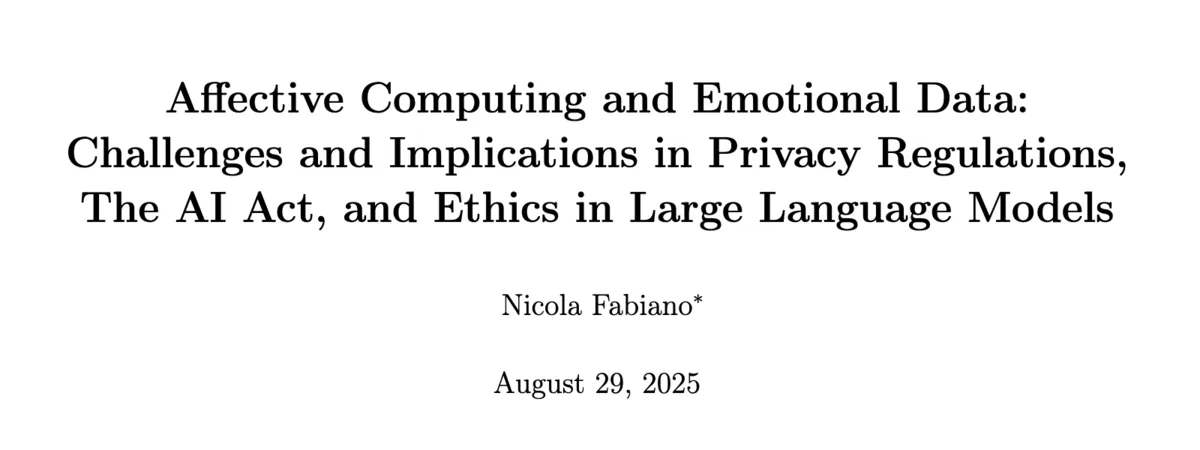📚 NOW ON ARXIV: “Affective Computing and Emotional Data: Challenges and Implications in Privacy Regulations, The AI Act, and Ethics in Large Language Models.”
I’m pleased to share that my research paper is now publicly available on arXiv.
🎯 Core Question: How should we regulate AI systems that can recognize and respond to human emotions?
📊 Key Topics Covered:
• Emotional intelligence in Large Language Models (ChatGPT, Claude)
• Transformation of human emotions into processable data
• GDPR classification of emotional data as sensitive information
• EU AI Act implications for emotion recognition systems
• Case study: OpenAI’s ChatGPT-4.5 emotional capabilities
🔍 Main Findings: The paper reveals how emotional data collection often occurs implicitly in everyday digital interactions, raising urgent questions about consent, transparency, and individual autonomy.
I propose a multidimensional governance framework that strikes a balance between innovation and the protection of fundamental rights.
📌 Why This Matters Now
The emergence of emotionally aware AI presents unprecedented challenges that require immediate attention:
• Privacy concerns - Emotional profiling creates detailed psychological profiles without explicit consent
• Cultural fairness - Recognition systems show significant biases across demographic groups
• Vulnerable populations - Children, the elderly, and mental health patients need special protections
• Authenticity questions - The boundary between genuine and simulated emotional responses becomes blurred
👥 Essential reading for: #DataProtection professionals, #AI developers, #Privacy lawyers, #Ethics researchers, and #Policy makers.
🔗 Read the full paper on arXiv: https://arxiv.org/pdf/2509.20153
Your thoughts and feedback are welcome!
Hashtag correlati
#ArtificialIntelligence #AffectiveComputing #GDPR #AIAct #EmotionalAI #DataPrivacy #AIEthics #LLMs #TechRegulation #AIGovernance #Research #arXiv
